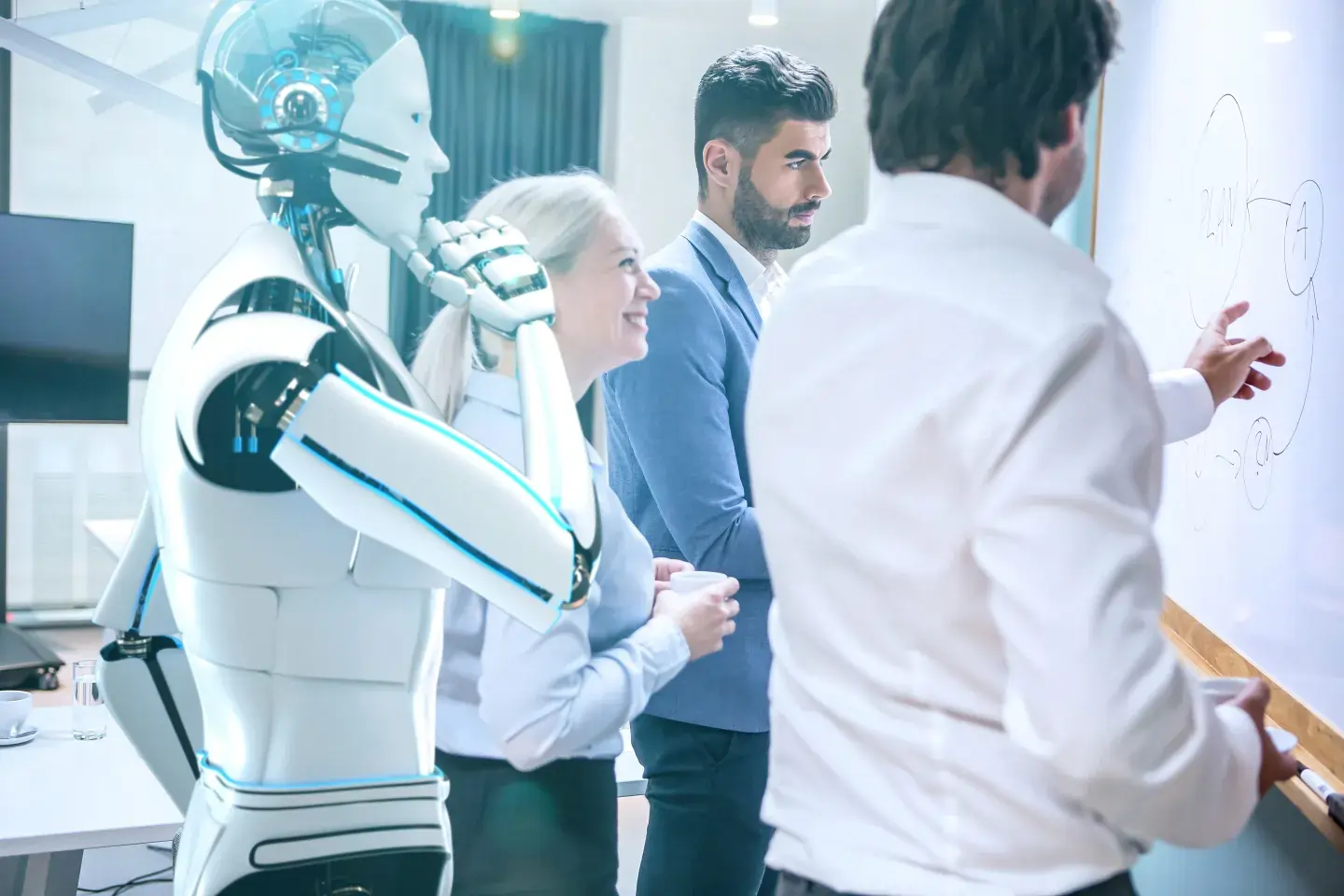AI Agents for Marketing: Transforming Campaigns, Customer Journeys, and ROI

Marketing has always been about reaching the right audience, at the right time, with the right message. But in today’s digital-first world, the sheer volume of channels, data, and tasks has made that mission harder than ever. Marketers are buried in reports, juggling multiple platforms, and struggling to personalize at scale.
Enter AI agents for marketing. These intelligent systems are not just tools for automation, they are digital teammates that can analyze data, design campaigns, personalize outreach, and optimize strategies in real time. By embedding agents into marketing workflows, businesses are unlocking higher efficiency, smarter targeting, and measurable growth.
What Are AI Agents for Marketing?
AI agents are autonomous digital systems designed to act on goals, not just commands. In marketing, that means they can:
- Understand objectives such as “increase conversions for Q4 campaigns.”
- Break them into smaller steps like audience segmentation, creative optimization, and reporting.
- Execute those steps across platforms like HubSpot, Salesforce, Google Ads, LinkedIn, and email tools.
- Adapt strategies based on performance data and customer behavior.
Instead of marketers chasing tasks, AI agents manage the end-to-end flow, ensuring nothing is missed and everything is optimized.
Why AI Agents Are Different from Marketing Automation
Many businesses already use marketing automation platforms that schedule emails, trigger reminders, or manage social media posts. But these systems are rigid. They follow rules that must be preprogrammed and cannot adapt when conditions change.
AI agents for marketing are different:
- They learn from feedback and adjust strategies in real time.
- They integrate across multiple channels, instead of being limited to one platform.
- They can reason about goals, not just execute predefined instructions.
In other words, marketing automation saves time. Marketing agents create outcomes.
Core Benefits of AI Agents for Marketing
- Hyper-Personalization at Scale
Agents analyze customer behavior and dynamically tailor content, offers, and timing for each audience segment.
2.Real-Time Optimization
Instead of waiting for campaign reports, agents adjust budgets, targeting, or creatives instantly as performance data comes in.
3.Seamless Cross-Channel Coordination
Agents align messaging across email, social, ads, and sales platforms to create consistent customer journeys.
4.Faster Insights and Reporting
Agents build reports automatically, highlight anomalies, and recommend actions, reducing hours of manual analysis.
5.Increased ROI
By optimizing continuously and reducing wasted spend, marketing agents deliver measurable improvements in campaign performance.
How to Implement AI Agents in Marketing
Businesses do not need to overhaul their entire tech stack to benefit. Here is a step-by-step approach to adopting AI agents in marketing.
Step 1: Audit Your Marketing Workflows
Identify repetitive, time-consuming processes such as campaign reporting, lead scoring, or content scheduling.
Step 2: Define Clear Goals
Instead of focusing on tasks, set goals like “reduce customer churn by 10 percent” or “improve lead-to-customer conversion rates.”
Step 3: Select the Right Agentic Platform
Choose a platform that integrates with existing tools and allows AI agents to manage workflows across multiple applications.
Step 4: Start Small and Scale
Deploy agents in one campaign or channel, measure performance, then expand to broader initiatives.
Step 5: Maintain Human Oversight
Even the best agents need governance. Marketers should review strategies, ensure brand alignment, and handle creative decision-making.
Key Use Cases of AI Agents for Marketing
1. Customer Segmentation and Targeting
Agents analyze demographic, behavioral, and purchase data to automatically create highly accurate segments. They then match campaigns to each segment, ensuring relevance.
2. Personalized Email Campaigns
Agents generate and send personalized email content based on customer actions, purchase history, and engagement patterns.
3. Ad Campaign Optimization
From bidding strategies in Google Ads to creative testing in Meta campaigns, agents monitor performance and reallocate budgets to the highest-performing assets.
4. Social Media Engagement
Agents schedule posts, analyze sentiment, and even engage with comments or direct messages, ensuring faster responses and better community building.
5. Content Recommendations
Agents suggest blog posts, whitepapers, or product recommendations to website visitors based on browsing behavior.
6. Lead Scoring and Nurturing
Agents assess lead quality using multiple data points and trigger personalized follow-ups through email or sales team alerts.
7. Analytics and Reporting
Instead of waiting for end-of-week reports, agents compile performance dashboards and highlight which campaigns deliver the best ROI.
Practical Example: A Product Launch Powered by AI Agents
Imagine launching a new SaaS product. Traditionally, the marketing team would:
- Segment audiences manually.
- Run separate ad campaigns across multiple channels.
- Track engagement and report back weekly.
- Coordinate with sales for lead follow-up.
With AI agents:
a) The agent analyzes CRM data and creates targeted segments automatically.
b) It launches ads across LinkedIn, Google, and email simultaneously.
c) As results come in, the agent reallocates budget to high-performing campaigns.
d) It sends warm leads to sales in real time while nurturing others with personalized content.
e) It generates a live campaign performance dashboard for executives.
The entire process runs intelligently with minimal manual oversight, delivering faster results and greater efficiency.
How Burai Delivers AI Agents for Marketing
While many platforms offer pieces of the puzzle, Burai is built to deliver true agentic intelligence for marketing. Here is how Burai stands apart:
- Workflow Mapping: Burai learns how your marketing team actually operates and aligns agents with real processes, not theoretical playbooks.
- Cross-Platform Coordination: From Microsoft to Google, HubSpot to Salesforce, Burai agents connect the full ecosystem.
- Agent-Driven Personalization: Burai agents reason about goals and adapt campaigns dynamically, not just through prewritten rules.
- Built-In Governance: Every action is logged and monitored so marketing leaders retain control and compliance.
- Scalability Across Teams: Agents scale from one campaign to enterprise-wide coordination without complexity.
Burai is not another dashboard. It is an intelligent layer that turns fragmented campaigns into unified, adaptive marketing strategies.
Challenges in Using AI Agents for Marketing
Adopting AI agents is powerful, but businesses should also be mindful of challenges:
- Data Quality: Agents rely on clean, accurate data to make decisions.
- Brand Voice: While agents can generate content, humans should review messaging for tone and alignment.
- Governance: Oversight is essential to ensure agents act within brand and compliance guidelines.
- Change Management: Teams may need training to trust agents with tasks they used to control.
The key is to start with clear boundaries, maintain transparency, and gradually scale as confidence grows.
The Future of Marketing with AI Agents
The rise of agents for marketing is only beginning. Over the next few years, we will see:
- Self-Optimizing Campaigns: Entire campaigns that launch, test, and optimize themselves with little human input.
- Cross-Agent Collaboration: Marketing agents coordinating with sales, finance, and operations agents for seamless go-to-market execution.
- Predictive Marketing Strategies: Agents using predictive analytics to anticipate customer needs before they even express them.
- Always-On Personalization: Every customer interaction tailored in real time, across every channel.
This future is not about replacing marketers. It is about equipping them with intelligent agents that make marketing more precise, more adaptive, and more effective.
Final Thoughts: Why Marketing Needs AI Agents Now
Marketing has always thrived on creativity, strategy, and human insight. But execution at today’s scale requires something more. AI agents for marketing provide that missing link: the ability to automate workflows, optimize continuously, and personalize at levels humans alone cannot achieve.
Organizations that adopt agents now will see immediate benefits in efficiency and ROI, while also preparing themselves for the future of intelligent, adaptive marketing. Those that wait risk falling behind competitors who already leverage agents as part of their daily marketing operations.
💡 Want to see how Burai empowers marketing teams with intelligent AI agents? Request a demo today and discover how we help businesses move from fragmented campaigns to coordinated, agent-driven marketing strategies.



